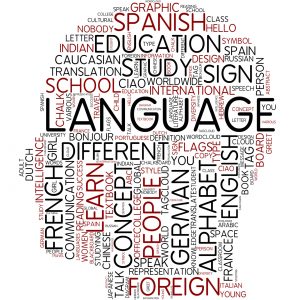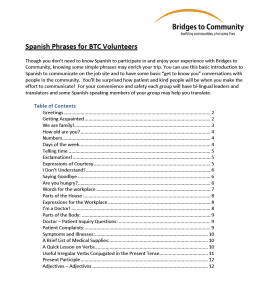
Languages have always been central in my life. They not only represented my culture and identity, but also were the way to connect with my extended family. I originally learned English at home because my Chilean mother and German father never thought that we would stay in the US for long and wanted to take advantage of the opportunity. It was therefore my first language and still my mother tongue, despite it being my parents’ second or third language. We lived in Germany for two years when I was in Kindergarten and first grade and so I learned and became fluent in German very quickly. Once we returned to the US and I completed a ESL (English as a second language) curriculum, my German quickly distilled to only being able to understand well. In high school I regained some fluency at the peak of studying it at school, but it was always difficult to retain. I learned French fourth through seventh grade and again senior year of high school and so I am able to understand some of it, particularly with its similarities to Spanish. I first began studying Spanish in seventh grade and really enjoyed it. With every trip to visit family in Chile, I noticed my Spanish improving and the ability to finally communicate inspired my drive to master the language. Last Fall I was on the Madrid FSP and lived with a host family and studied at the Universidad de la Complutense entirely in Spanish. Even since then, I’ve noticed my Spanish slipping and being much more nervous to speak.
Similar to my experience with German, I am able to understand almost everything that I hear, but I am worried about how nervous I get about speaking. I also anticipate that I may not understand as much as I have never studied any medical Spanish. My goals are to be vocal and daring to be able to talk with the Nicaraguans I cross paths with (as I know that’s the only way I can regain the fluency I felt speaking while on my FSP) and study medical Spanish independently now prior to the trip to be somewhat versed in the particular vocabulary so that I can get the most from the time in the clinics. I think that the CCESP program provides the perfect opportunity for me to combine my interest and abilities in the language and culture of Latin America with healthcare, and I’m really excited to take advantage of that.
It was an interesting experience to think about how to help my classmates begin learning Spanish during the retreat we had mid-term. The student director and I ultimately decided to split people up into smaller groups with a mix of experienced and beginner speakers so that each learner would get more attention and practice. While only 20 minutes, I think it was a good way to start talking in Spanish. It amazed me how much learning a language has to be an individual effort to stick with it and ultimately put in the necessary time! I can imagine all of our Spanish will improve rapidly while in Nicaragua. My plan is to study the packet Bridges to Community has created for its volunteers prior to our trip!

